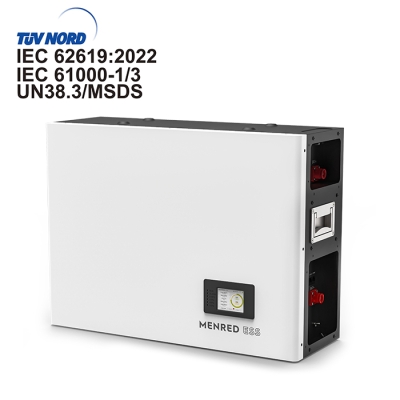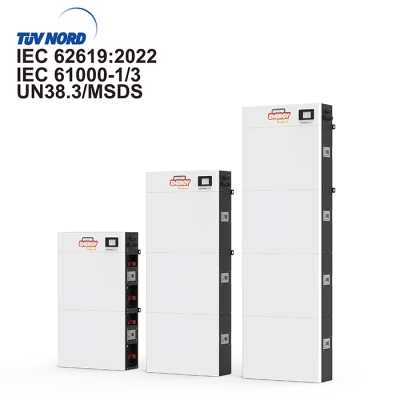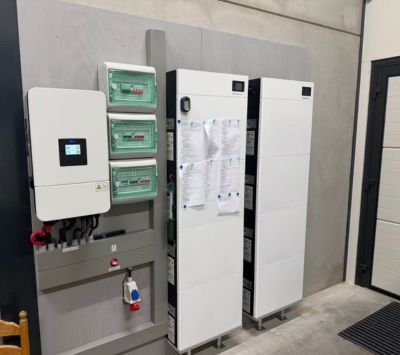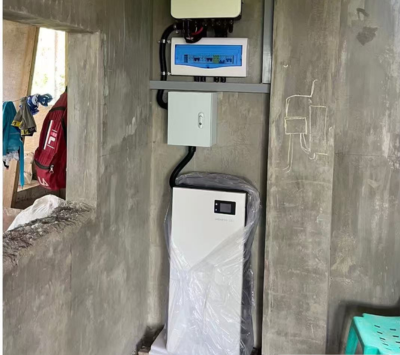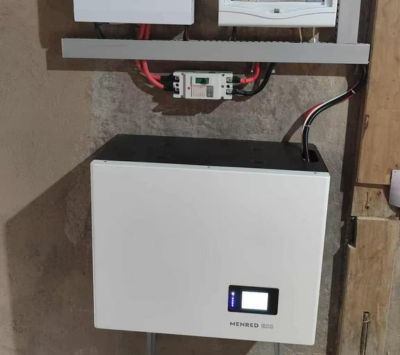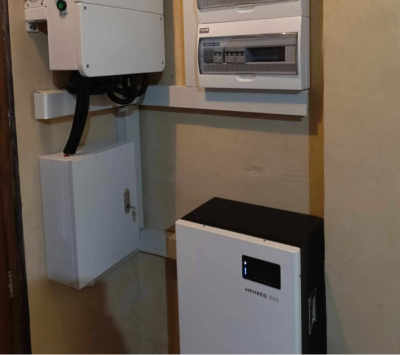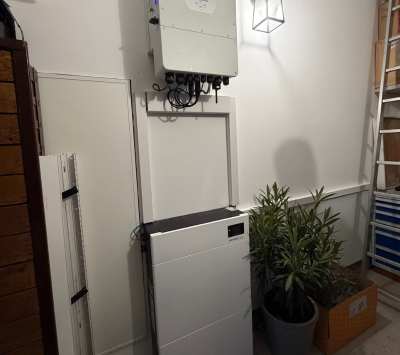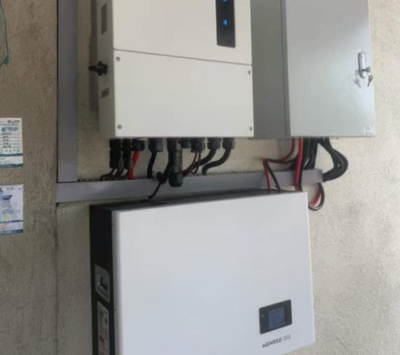What Are Lithium Batteries?
Lithium batteries are rechargeable power sources that utilize lithium ions to store and discharge energy. Unlike traditional batteries that rely on chemical reactions, lithium batteries operate through the movement of ions between two electrodes—typically lithium cobalt oxide (cathode) and carbon (anode). This unique process enables a higher energy density, allowing for more energy to be stored in a smaller and lighter form factor.
Types of Lithium Batteries
The most common type of lithium battery is the lithium-ion battery. These batteries have gained popularity across various applications, including consumer electronics, electric vehicles, and home energy storage systems. Their efficiency and compact design make them ideal for powering devices and reducing overall energy consumption.
For more in-depth information about how lithium-ion batteries work, you can visit the U.S. Department of Energy.
The Role of Lithium Batteries in Home Energy Storage Systems
Lithium batteries have revolutionized home energy storage. Their high energy density, low maintenance requirements, and long lifecycle make them an appealing option for homeowners. Compared to other battery types, such as lead-acid, lithium batteries offer numerous advantages, including faster charging, lighter weight, and a longer lifespan.
For homeowners, these qualities translate to a more efficient and reliable storage system that can power the house during peak demand or in emergencies, such as power outages.
MENRED ESS and Our Lithium Iron Phosphate (LiFePO4) Batteries
At MENRED ESS, we specialize in LiFePO4 batteries, including models like LFP.6144.W, LFP.6144.G2, LFP.6144.G3, and LFP.6144.G4. Our batteries are designed with high safety standards and are UL1973 certified, ensuring reliability and peace of mind for home energy storage.
How Lithium Battery Technology Supports Energy Independence
One of the main appeals of lithium battery systems in home storage is their potential to promote energy independence. By storing surplus energy generated from renewable sources, such as solar panels, homeowners can rely less on the grid and utilize their own power. This independence not only helps reduce electricity bills but also provides a crucial backup during power outages, ensuring that essential devices remain operational.
With the increasing adoption of lithium battery technology, homeowners are empowered to take control of their energy usage. As these systems become more efficient and affordable, the transition to self-sufficiency becomes increasingly viable, allowing families to reduce their carbon footprint and contribute to a more sustainable energy future.
Key Components of a Lithium Battery System
A home energy storage system utilizing lithium batteries comprises several essential components:
Battery Cells and Modules: These are the core parts of the battery that store energy. They are designed to provide high energy density and long cycle life, making them ideal for residential applications.
Battery Management System (BMS): This vital component monitors and protects the battery from issues such as overcharging or deep discharging. The BMS ensures safe operation by managing the state of charge and maintaining optimal battery health.
Inverters and Controllers: These devices convert stored DC (direct current) power into usable AC (alternating current) for household appliances. Inverters are crucial for integrating the battery system with home electrical systems, allowing for seamless energy use.
Lithium Battery Lifespan and Charge Cycles
The lifespan of a lithium battery is commonly measured in terms of charge cycles. Each time a battery is charged and then discharged, it completes one cycle. On average, lithium batteries used in home energy storage systems can last anywhere from 10 to 15 years. Factors influencing this lifespan include usage patterns, the specific type of battery, and maintenance practices.
Proper care and usage can significantly extend the life of lithium batteries. Avoiding deep discharges and maintaining optimal temperature conditions can help ensure that these batteries perform efficiently throughout their lifespan. Additionally, advancements in battery technology continue to improve longevity and performance, making lithium batteries a reliable choice for home energy solutions.
Advantages of Lithium Batteries in Home Energy Storage
There are numerous benefits to using lithium batteries in home energy storage systems:
Safety and Stability: Lithium batteries are designed with advanced safety mechanisms that help prevent overheating and short-circuiting. This ensures reliable operation and peace of mind for homeowners.
Eco-Friendly: With a longer lifespan compared to traditional batteries and their recyclability, lithium batteries represent a more sustainable choice for energy storage. Their reduced environmental impact aligns with growing concerns about sustainability.
Scalability: Homeowners have the flexibility to add battery modules as needed, allowing them to adapt their energy storage system to changing energy demands. This scalability makes it easier to upgrade and expand the system over time.
Overall, these advantages make lithium batteries an excellent option for those looking to enhance their energy independence and improve their home’s energy efficiency.
Factors to Consider When Choosing a Lithium Battery System
When selecting a lithium battery system for your home, several important factors should be taken into account:
Household Energy Needs: Assess your energy consumption patterns and determine how much storage capacity you require. Understanding your peak usage times can help you choose a system that meets your household’s demands.
Compatibility with Renewable Sources: Ensure that the lithium battery system is compatible with your existing renewable energy sources, such as solar panels. This compatibility allows for efficient energy capture and storage, maximizing your energy independence.
Budget: Consider your financial constraints and the overall cost of the battery system, including installation and maintenance. It’s essential to find a balance between upfront costs and long-term savings on energy bills.
Engaging with an energy specialist offers valuable insights and ensures your energy storage system is tailored to your unique requirements. Our MENRED ESS account managers are here to help you select the right battery capacity and type to meet your needs. CONTACT US to get started.
By carefully evaluating these factors, you can choose a lithium battery system that enhances your home’s energy efficiency and independence.
Conclusion
Lithium batteries provide a reliable and efficient solution for home energy storage, facilitating a transition to renewable energy and enhancing energy independence. As technology continues to advance, lithium battery systems are poised to play a pivotal role in sustainable home energy solutions.
FAQs
What are the main benefits of lithium batteries?
Lithium batteries are efficient, long-lasting, and highly energy-dense, making them ideal for home energy storage.
How long do lithium batteries last in home storage?
Typically, they last 10 to 15 years with proper care and usage.
Are lithium batteries safe for home use?
Yes, they come equipped with safety features, such as Battery Management Systems (BMS), to prevent overcharging and overheating.
What is the environmental impact of lithium batteries?
While mining and disposal present environmental concerns, advances in recycling are helping mitigate these effects.
Can lithium batteries be recycled?
Yes, recycling efforts for lithium batteries are improving, making them a more eco-friendly option.
What is the cost of a lithium battery system for home storage?
Costs vary, generally ranging from a few thousand to tens of thousands of dollars, depending on the system size and type.

